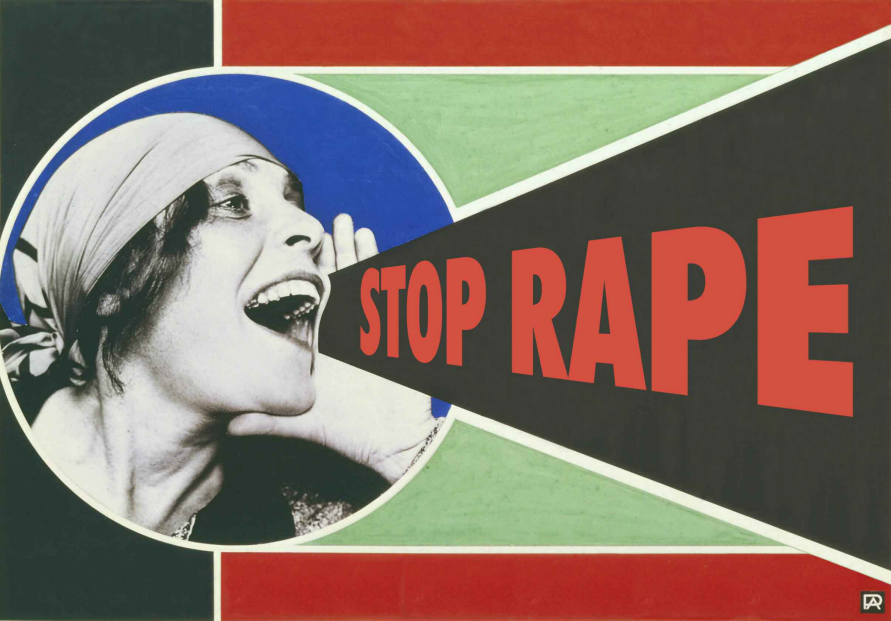A feminist group has published a list of ‘top ten tips’ for preventing rape that include “don’t put drugs in women’s drinks” and “if you pull over to help a woman whose car has broken down, remember not to rape her.”
The list was created by Rape Crisis Scotland, a charity which works to support local rape centres, and provides training and consultancy to the police, Crown office and health services on how to deal with rape victims and perpetrators.
Their website claims that the charity “provides crisis support for anyone in Scotland affected by sexual violence at any time in their lives.” However, it is abundantly clear that the charity believes all rape victims to be female, and all perpetrators male.
The list was re-published this month by a student feminist group at Cyprus College, California in their publication GenderSmash. The publication claims to avoid material that “reeks of hateful political ideology, religious doctrine, or familiar and uninspiring arguments,” yet it was happy to publish what amounted to a clear attempt to demonise men.
Other tips include “USE THE BUDDY SYSTEM! If you are not able to stop yourself from assaulting people, ask a friend to stay with you while you are in public”; and “Carry a whistle! If you are worried that you might assault someone ‘by accident’ you can hand it to the person you are with, so they can call for help.”
The charity claims that the list, which was printed on A3 and A4 sized posters for sale, is an attempt “to reverse the popular trend of focusing rape prevention messages on women.” However, the campaign plays into the false narrative that all men are potential rapists, whilst only women can be victims.
UK government statistics show that, of the 78,000 recorded rapes or attempted rapes that take place each year in the UK, 9,000 involve male victims. However rape in general is known to be under-reported, and male rape in particular is thought to be unrepresented in official statistics as men are made to feel ashamed thanks to a prevailing narrative that tells men to “man up”, or denies that men can be raped.
An American study published in the American Journal of Public Health in 2012 looked at the 2010 National Intimate Partner and Sexual Violence Survey, amongst others, as it includes a category of “being made to penetrate”. When those cases were taken into account, the study found that rates of non-consensual sexual activity equalised between the sexes, with 1.270 million women and 1.267 million men found to be victims of sexual violence.
Men’s advocacy groups are starting to hit back on the issue. Writing on the website A Voice for Men, author Hannah Wallen passionately argued: “Women as a group are seen as more vulnerable than men. The general public is more sympathetic to women, and perceived threats to women can be more readily exploited as a tool of manipulation. Feminists need to maintain the public perception that women are innocent victims and men are violent and domineering in order to maximize the marketability of protecting women from men, or they risk losing their government, corporate, and public funding meal ticket.
“After decades of research and theory building, feminist rape apologists know full well the damage they are doing to boys and men. They’re aware that their denial is preventing male victims from seeing the same progress in legal response and victim’s assistance that has been won for women. They know they are promoting lenience for female rapists.”
Rape Crisis Scotland is financially supported by the Scottish government.
In June this year the Scottish Government launched ‘Equally Safe: Scotland’s strategy for preventing and eradicating violence against women and girlsʼ. Commenting on the new program on their website, Rape Crisis Scotland said: “We welcome the continued commitment to support interventions, as well as the explicit acknowledgement that preventing violence against women is dependent upon reducing gender inequality in the broadest sense. This strategy makes it clear that all sectors of society have a responsibility to actively work towards preventing male violence and that prevention and equality measures must be embedded across all sectors.
“We welcome the continued commitment from the Scottish Government […] to take action on all forms of violence against women and girls.
“Taking a gendered approach doesnʼt mean, of course, that boys and men do not experience violence or abuse, or that women never use violence. Violence against boys and men, and violence committed by women, may be less common but it is no less serious when it occurs. Instead a gendered approach acknowledges that females suffer violence and abuse disproportionately, and that it is predominantly males who carry out such violence. A gendered approach recognises the main cause of such violence as being gender inequality, and highlights the need to achieve broad social change in order to effectively end male violence.”
According to the Office of National Statistics, 1.2 million women and 800,000 men experienced domestic violence in 2011/12, although again male victimisation is likely to be under-reported. In the same year, 68 percent of murder victims were male, and the male rate of suicide is three times that of the female rate.
Author N Quentin Woolf, writing for the Telegraph on the subject of violence against men earlier this year said: “When female stereotypes began to be dismantled, much of what was sloughed off were the outdated cultural assumptions. … And if that is true, then perhaps men are not naturally predisposed to committing violence, much less to being condemned to suffer its effects.”

COMMENTS
Please let us know if you're having issues with commenting.